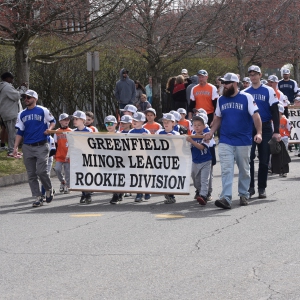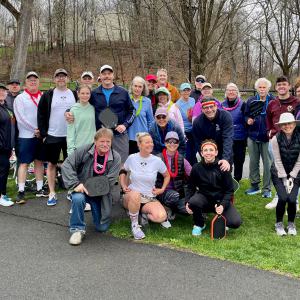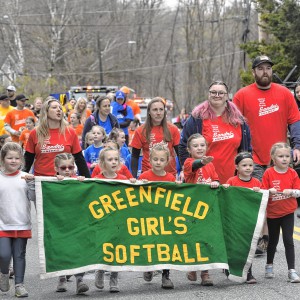Greenfield committee reviews options for citizens initiatives
| Published: 03-23-2023 7:05 PM |
GREENFIELD — A panel of residents, city councilors and officials are inching closer toward voting on aspects of its review of the city charter’s process for citizens initiatives.
Issues that came to focus during an ad hoc committee meeting on Wednesday included: whether to establish a number or percent threshold for the number of signatures needed for citizens initiatives and what those numbers should be; whether it should be a two-step process; how many days petitioners should have to collect signatures; how many days City Council should have to review a petition; and finally, whether the subsequent section of the charter — pertaining to citizen referendums — should mirror the citizens initiative process.
With citizens initiative petitions, outlined in Section 7-7, new issues or ideas can be proposed to the City Council or the School Committee, or brought to a townwide ballot if rejected by the respective body. Under the current charter language, a resident seeking to submit a citizens initiative petition must collect signatures equivalent to 10% of those who voted in the last biennial election — but not less than 5% of all registered voters at the same date — for the City Council or the School Committee to either accept or reject.
If rejected, that resident would then need to collect an additional number of signatures equivalent to 5% of voters voting, but not less than 2.5% of all registered voters. In total, with 13,511 voters in 2022, this would require roughly 1,014 votes for a petition to get on the ballot.
Ad hoc committee members considered several proposals Wednesday night, including one from Precinct 1 Councilor and committee member Katherine Golub that would require gathering signatures from 150 registered voters before bringing a petition before City Council, followed by an additional 450 signatures to go to the ballot if City Council rejects it. At least 50 signatures would be required per precinct.
“I think it should be relatively easy for citizens to bring a petition [to City Council],” said Golub. “I don’t think it should be that hard.”
Still, she added, residents should have to demonstrate significant support for a petition before it goes to the ballot.
Committee member Isaac Mass presented a similar plan, but with 500 signatures required to bring an initiative to the ballot.
Article continues after...
Yesterday's Most Read Articles
 Former Leyden police chief Daniel Galvis charged with larceny
Former Leyden police chief Daniel Galvis charged with larceny
 My Turn: The truth about time spent on MCAS testing
My Turn: The truth about time spent on MCAS testing
 GMLB, Newt Guilbault gets seasons underway Sunday (PHOTOS)
GMLB, Newt Guilbault gets seasons underway Sunday (PHOTOS)
 Millers Meadow idea would ‘completely transform’ Colrain Street lot in Greenfield
Millers Meadow idea would ‘completely transform’ Colrain Street lot in Greenfield
 Bulletin Board: Gary Tashjian, Cheri McCarthy win Twice As Smart Pickleball Tournament
Bulletin Board: Gary Tashjian, Cheri McCarthy win Twice As Smart Pickleball Tournament
 Greenfield Girls Softball League opens its 2024 season (PHOTOS)
Greenfield Girls Softball League opens its 2024 season (PHOTOS)
Committee member and Chief of Staff Dani Letourneau’s proposal, meanwhile, would require gathering signatures from 5% of registered voters to get an initiative before the City Council, and if the council rejects or changes the initiative, citizens would have to gather supplemental signatures from another 5% of registered voters. With 13,511 registered voters in 2022, that would mean a total of 1,352 signatures.
After seeing what her proposed percentages would amount to in signature numbers, Letourneau said she wasn’t “attached” to a 5% threshold. While she doesn’t think the process should be “super easy,” she said there needs to be a balance between the work of representative government and activism.
“They work together, but they’re not the same thing,” Letourneau said.
Committee member Al Norman proposed requiring 400 signatures from registered voters to bring a citizens initiative to City Council. If City Council changes the initiative, the original 10-person group that brought the petition could accept the council’s version if eight out of 10 members voted to accept it. If the petition is rejected, no further signatures would be required and the initiative would go to the ballot.
“I feel comfortable supporting a one-step petition gathering process, just as we have with referendums,” Norman said.
Ad hoc committee members debated the need for a two-step process, with most appearing to be in agreement that it was a benefit to ensure strong support for a particular initiative in the absence of City Council’s support.
“I’m not attached to 150 [signatures], but I feel it’s possible,” said Golub. “I feel more attached to having a multi-tier conversation about things.”
Chair David Singer, who proposed no changes to the language in the charter, added that “the ballot is not a place to decide things.”
“The ballot is the place to protest things,” he said.
Members also tossed around suggestions regarding the length of time petitioners should have to collect signatures as well as the length of time City Council should have to consider a petition. Another sticking point was whether — given the November 2021 ballot question — the subsequent section on referendums should be part of the conversation.
The formation of the ad hoc committee followed the November 2021 ballot question that sought to change the number of signatures required for a citizens referendum petition — outlined in Section 7-8 as the process by which a resident can propose an existing law or ordinance be reconsidered by voters — from the current threshold of 10% of voters voting in the most recent biennial city election (but no fewer than 2.5% of registered voters) to 7% of all registered voters in the most recent biennial city election. The question came as part of the charter review process, which takes place every year ending in zero.
The ballot measure was defeated by a vote of 1,485 “no” votes to 1,321 “yes” votes. This meant the language in Section 7-8 of the charter would remain as it is currently.
After the vote, the Appointments and Ordinances Committee recommended no changes to Section 7-7, which pertained to the citizen initiative process — a recommendation that was met with criticism from residents who felt the processes for both petitions should be more in line with each another. And so formed the ad hoc committee, which was tasked late last year with reviewing the language for Section 7-7 and providing a recommendation to the Appointments and Ordinances Committee of the City Council.
The committee expects to vote on some of the issues at its next meeting, scheduled for May 8 at 6 p.m.
“I feel like we’ve had a good discussion with lots of back and forth,” Norman said. “I don’t want this to go on for too many meetings.

 Photos: A musical classic returns
Photos: A musical classic returns Northfield appeals to Warren, Markey for Schell Bridge aid
Northfield appeals to Warren, Markey for Schell Bridge aid Prescription Drug Take Back Day set for Saturday in 15 communities in Franklin, Hampshire counties
Prescription Drug Take Back Day set for Saturday in 15 communities in Franklin, Hampshire counties
